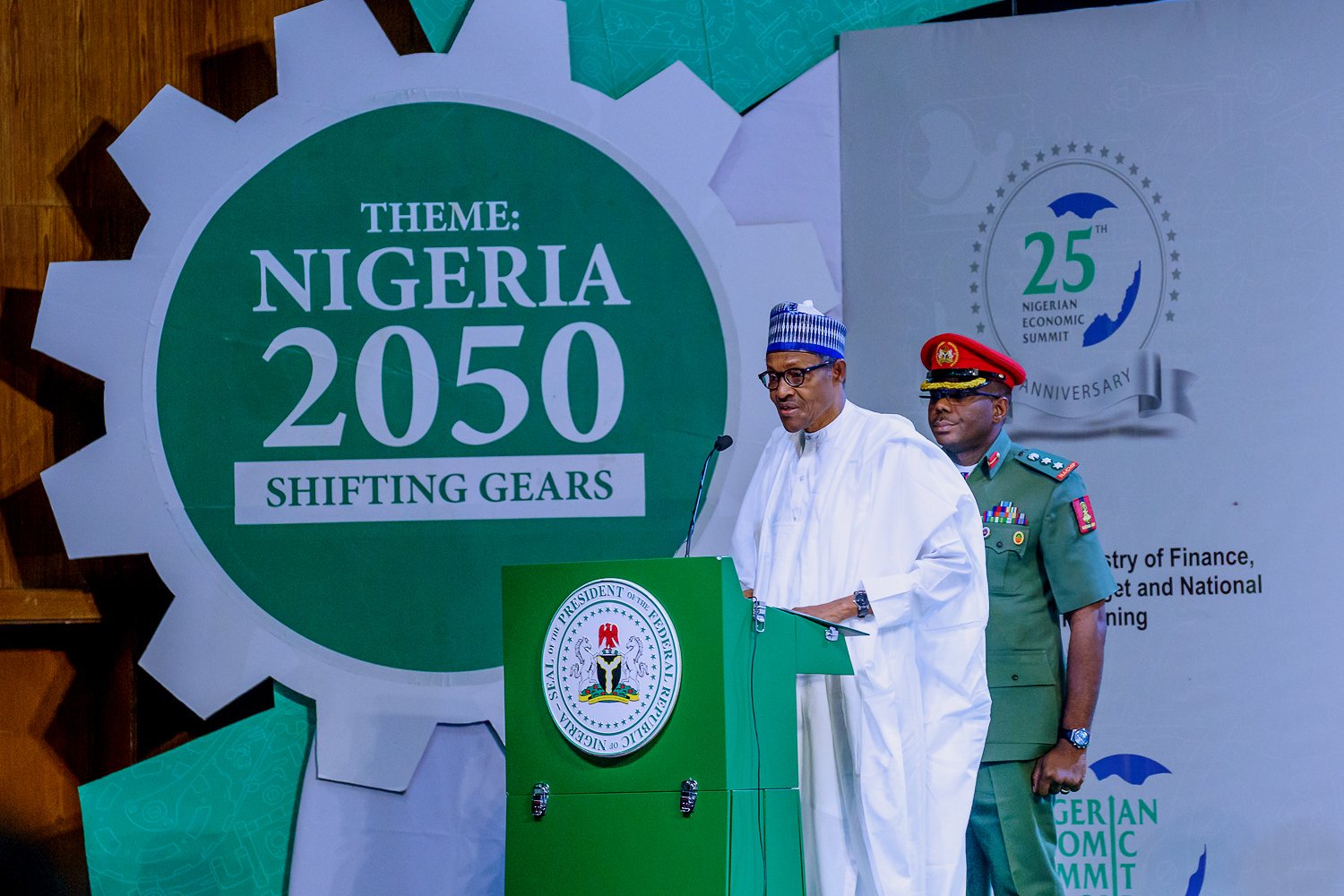The private sector players at the ongoing 25th edition of the Nigerian Economic Summit (#NES 25) in Abuja said the country’s education system needs an overhaul as it is failing to meet the needs of employers.
“Clearly, we do not have the luxury of time,” Asue Ighodalo, chairman, Nigerian Economic Summit Group (NESG), said. “Basically, our population is projected to grow by a little over 3 percent per annum, and if these projections are true, GDP must grow by that much year-on-year for us to just maintain our current GDP per capita, and this is without accounting for inflation.”
Nigeria’s population is expected to hit 410 million by 2050. Over 50 percent of this population will be under 18, with growing needs for food, shelter, security and education.
The government must, therefore, create competitive edge for industries to grow and initiate enabling policies mimicking the cement revolution, said Aliko Dangote, president, Dangote Group.
“Nigeria cannot afford not to be an inclusive economy. Inclusivity must be at the heart of our economic project,” said Dangote, who was represented by Ahmed Mansur, president, Manufacturers Association of Nigeria. Doyin Salami, who heads the Presidential Economic Advisory Council, urged the government to create a path for the private sector to stimulate investment growth.
“We must do bold and audacious things. We cannot get to the table of the giants by doing things in small measure. The private sector must be seen thriving on a defined path with the encouragement of the public sector,” Salami said.
“Government must stimulate investment to attract the needed capital that drives growth. We must find private sector elements that are willing to take risks to make huge investments, and be able to trigger the major accumulation of the capital investments that are required to drive us to that economy of the future,” he said.
At the event, the private sector players agreed that the Nigerian education system is not grooming the youth for the future as it fails to meets the demands of industry.
The Universal Basic Education says Nigeria has 13.5 million out-of-school school children, with share of education budget falling from 9.96 percent in 2012 to 6.96 percent in 2019. Africa’s most populous nation ranks 157 out of 189 in the Human Development Index – measured by education, health and income metrics.
“Our population is a liability already,” said Sanusi Lamido Sanusi, former governor of the Central bank of Nigeria (CBN) and now Emir of Kano.
“Over the years, we have blamed the North for not going to school, but we never asked, who is supposed to build those schools? We have not done that, yet we blame people for not going to school,” Sanusi said.
He said Northern Nigeria has the highest level of fertility, population and poverty because leaders have failed to educate the people, especially the girl-child.
“Except we stop seeing women and girls as baby factories and begin to see them as human beings with rights against abuse, divorce and right to earn an income, the situation will continue,” he said.
With an average growth of 2 percent, the Nigerian economy is growing sluggishly to meet the 2.6 percent annual population growth. The unemployment rate is 23.1 percent since the third quarter of 2018, while 98 million people have fallen into the extreme poverty trap. The economy seems to be rudderless as the stock markets continue to record huge losses with investors fleeing.
Ibukun Awosika, chairman of First Bank, said the federal and state governments must see the education sector as an emergency that must answer questions of where the country wants its future to be.


“Our articulated plan for the future must be planned in stages in such a way that it does not derail our eye from the overall target of the future. We must be careful and ensure that our election cycles and plan from now till 2050 does not disrupt the nationally articulated plan for the future,” Awosika said.
“Where are areas that we want to compete and train our kids for the education of the future? Again, competitive education for the future is key. We must redefine our education for the future and tailor it towards what the industry of the future requires,” she said.
Awosika suggested an emergency plan that will make residual courses in the universities relevant.
“You could convert biological science students to fill the nursing gaps to address concerns of maternal and child health. What of about 2 million teachers’ gap? We could get our graduates to do a programme focusing on education for the future that covers that gap,” she suggested.
Source: Businessdayng




